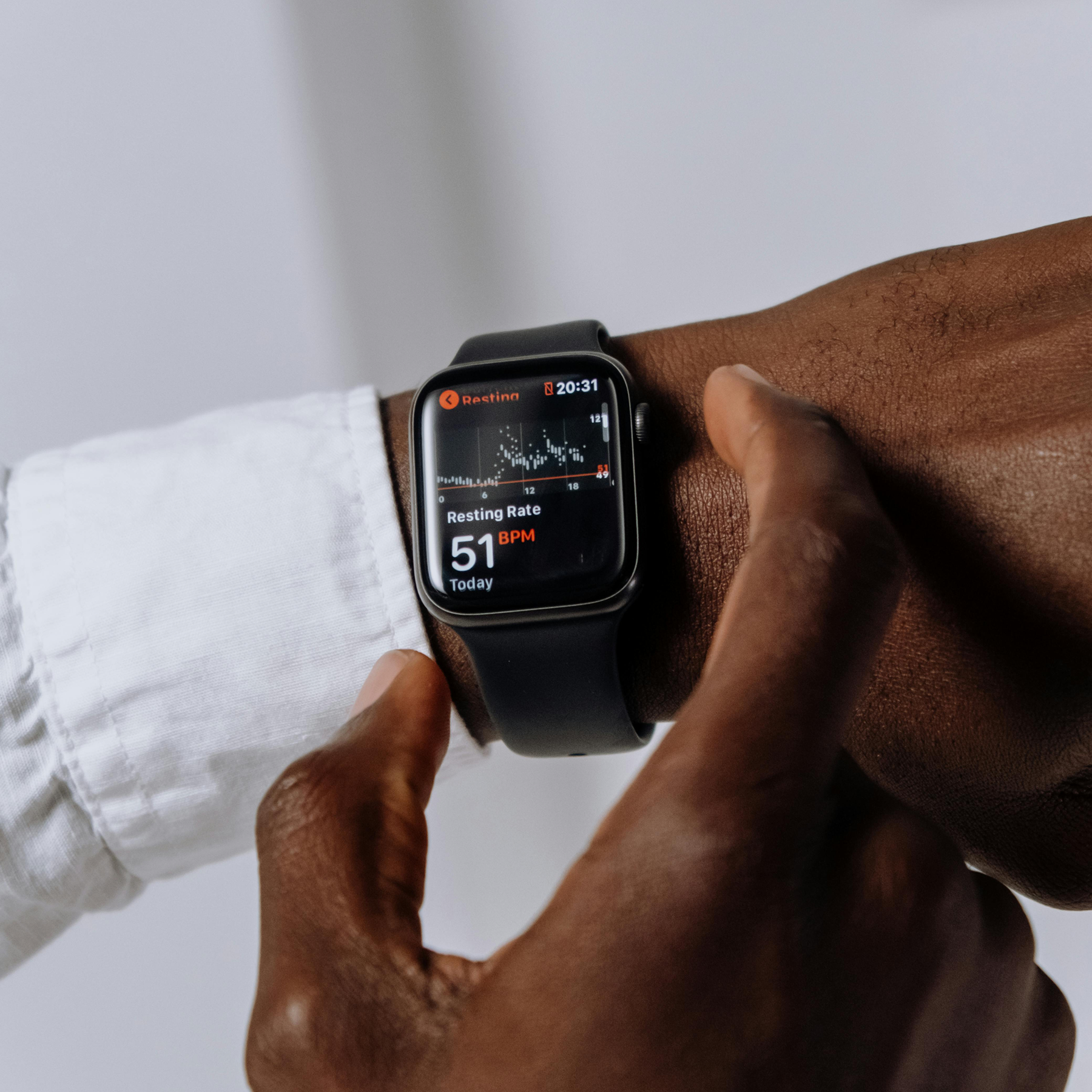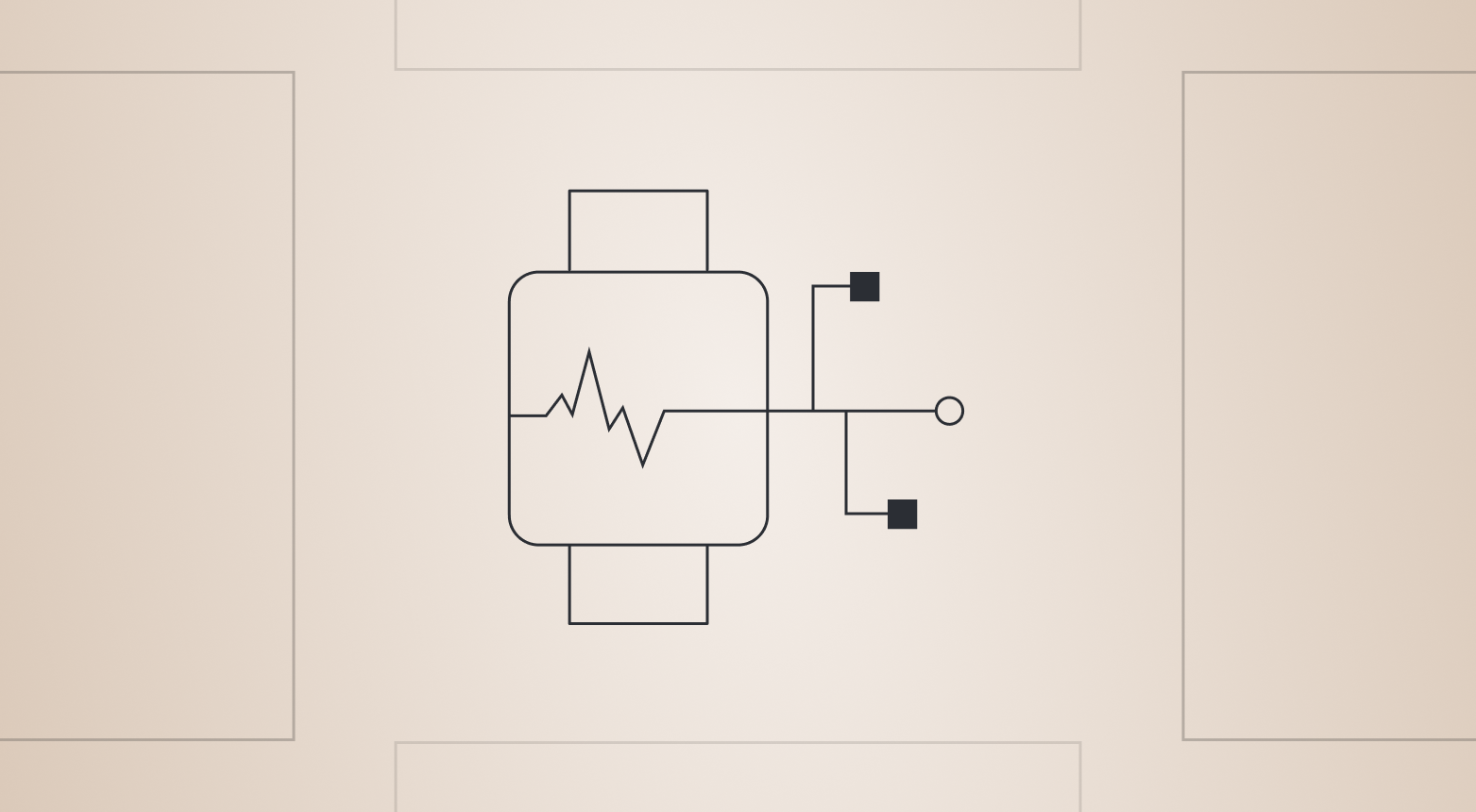Key Takeaways
- Health data is fragmented across multiple apps and devices, forcing users to manually connect the dots between wearables, medical records, and wellness tracking.
- Google's Personal Health Agent framework uses three specialized AI agents (Data Science, Domain Expert, and Health Coach) working together rather than one monolithic app.
- The multi-agent system dramatically outperformed single-agent approaches, with health experts preferring it in 80% of evaluations and users rating it nearly twice as trustworthy.
- Open-source infrastructure like Model Context Protocol (MCP) is emerging to connect health data sources without centralizing storage, enabling AI agents to orchestrate information across platforms.
- Momentum's open-source FHIR MCP Server and Apple Health MCP Server demonstrate how this infrastructure works in practice, providing modular components that developers can use to connect medical records and wearable data to AI systems.
Is Your HealthTech Product Built for Success in Digital Health?
.avif)
I've been trying to optimize my health for years now.
Some weeks I'm on fire: training consistently, sleeping 8 hours, meal prepping like a pro. Other weeks? Complete chaos. Miss a few workouts, sleep quality drops, grab whatever's convenient to eat.
Right now I use gym apps for logging workouts, Apple Watch for tracking activity and sleep, PDFs from my doctor with lab results, and I've been wanting to start tracking my diet properly but haven't found the right system yet.
Here's the problem: none of these tools talk to each other.
My trainer asks how I've been sleeping. I try to remember. My doctor asks about my activity levels. I give a rough guess. I'm supposed to connect all these dots in my head and somehow make good decisions.
This is the core problem Personal Health Agents are trying to solve. And Google just published the most comprehensive research framework showing exactly how they think it should work.
Spoiler: it's not about building one super-app that does everything.
The fragmented health data problem
Your doctor has your medical records: diagnoses, prescriptions, lab work. But they don't know you've been training hard 5 days a week, or that your sleep has been terrible because work is stressful.
Your personal trainer knows your workout program but doesn't have your latest bloodwork or know your resting heart rate has been elevated. They're making programming decisions with incomplete information.
Your wearable tracks everything: heart rate, HRV, steps, sleep stages. But that data just sits there, isolated from everything else that matters.
Each stakeholder in your health has a piece of the puzzle. Nobody has the full picture. And the burden is on you to remember everything, synthesize it, and communicate it perfectly to multiple people trying to help you.
Google's research confirms what many of us experience daily: health data isn't just medical records. It includes lab results and diagnoses, wearable data (heart rate, HRV, steps, sleep), training logs, nutrition tracking, mental state indicators, and recovery markers.
All of this matters. All of it provides context. And right now, all of it lives in separate silos.
What Google's Personal Health Agent framework reveals
Google's research, detailed in their paper "The Anatomy of a Personal Health Agent," reveals something critical about how AI health systems should be built.
They're not trying to create one giant app that replaces every tool you use. Instead, Google's approach centers on creating specialized AI agents that work together, each handling different aspects of health data and advice.
The three-agent architecture Google tested:
- Data Science Agent - Analyzes personal time-series data from wearables and medical records. It can answer questions like "Has my running pace improved over the last three months?" by processing complex patterns in your fitness data and providing statistically sound insights.
- Domain Expert Agent - Acts as the medical knowledge specialist, interpreting health conditions and explaining biomarkers using evidence-based information. When you ask about blood pressure readings or need to understand lab results, this agent provides contextualized, personalized responses grounded in current medical research.
- Health Coach Agent - Serves as the motivational guide, helping set realistic health goals and navigate behavioral changes. Using techniques from motivational interviewing, it provides supportive guidance while empowering users to take control of their health journey.
The key insight from Google's research: these agents don't work in isolation. An intelligent orchestrator determines which agents should respond to specific queries and how they should collaborate.
For example, when someone asks "How can I improve my sleep based on last week's data?", the system first engages the Data Science Agent to analyze sleep patterns, then involves the Domain Expert Agent to interpret findings within medical context, and finally leverages the Health Coach Agent to provide personalized recommendations.
Google's findings: What actually works
Google's evaluation was massive: over 7,000 human annotations and 1,100 hours of expert assessment across 10 comprehensive benchmark tasks.
The research identified four critical categories of health queries that Personal Health Agents must address. General health knowledge covers factual questions about health topics, treatments, and medical concepts. Personal data insights involve understanding patterns in wearable data, comparing metrics against guidelines, and identifying meaningful changes over time. Wellness advice encompasses actionable insights for health improvement, personalized goal setting, and progress tracking. Personal medical symptoms include symptom assessment and guidance, though Google emphasizes this supplements rather than replaces clinical care.
The results were striking. The specialized Data Science Agent achieved a 75.6% success rate in generating robust statistical analysis plans, compared to 53.7% for baseline systems. The Domain Expert Agent showed dramatic improvements in trustworthiness ratings, with users rating it 96.9% trustworthy compared to only 38.7% for general-purpose AI systems. Expert evaluators rated the Health Coach Agent significantly higher across multiple coaching competencies, particularly in active listening and user empowerment.
Most importantly, the multi-agent system working together significantly outperformed single-agent approaches. End-users preferred the collaborative system in 48.7% of cases, compared to 26.5% for single-agent systems. Health experts showed an even stronger preference, ranking the collaborative system highest in 80% of evaluations.
The technical reality: What this means for implementation
Google's research validates that Personal Health Agents work, but it also reveals the complexity involved in building them.
The study used data from 1,165 participants in the Wearables for Metabolic Health (WEAR-ME) study, incorporating comprehensive health data including wearable device metrics, blood test results, and detailed health questionnaires. Testing across diverse health profiles - from healthy individuals pursuing fitness goals to those managing chronic conditions like diabetes and hypertension - showed consistent benefits.
However, the research also highlights significant challenges:
- Computational costs are substantial - The multi-agent system requires significantly more processing power than simpler alternatives. Google's system involved 6.5 LLM calls per query on average, with response times of over 3 minutes in some cases.
- Data standardization remains problematic - Every wearable calculates metrics differently. Garmin's "stress score" isn't comparable to Whoop's "strain." There's no agreed-upon standard for what these metrics mean or how they should be interpreted together.
- Integration complexity scales rapidly - Even connecting to 10 different wearables requires building and maintaining 10 different integrations, each with unique APIs, authentication flows, and rate limits.
- Regulatory considerations - Health data is heavily regulated. Any system handling personal health information must comply with HIPAA, GDPR, and other privacy regulations.
The infrastructure being built
Despite these challenges, the infrastructure for Personal Health Agents is already emerging, and much of it is open-source.
Model Context Protocol is gaining traction as a standard way for AI systems to access data from different sources. Your workout app exposes training data through an MCP server. Your nutrition app shares meal logs. Your EHR system exposes lab results. The Personal Health Agent orchestrates this data rather than storing it.
Key infrastructure components include:
- FHIR MCP servers that connect to medical data using the standard format for health records, making lab results, diagnoses, and medications accessible to AI agents
- Wearable MCP servers that connect to devices like Apple Health and Garmin, exposing workout data, heart rate, sleep, and recovery metrics to intelligent systems
Projects like our open-source FHIR MCP Server and Apple Health MCP Server demonstrate how this infrastructure works in practice. The approach is modular: instead of one company building everything, create components that work together. Developers pick what they need and connect the pieces relevant to their specific use case.
This infrastructure aligns perfectly with our healthcare infrastructure expertise, where we've helped companies like Caily build caregiver support platforms with seamless EHR integration.
What this means for HealthTech companies
Google's framework validation has immediate implications for companies building in health, wellness, and fitness.
The strategic question: How will your app fit into the agent-native future?
Users will increasingly expect their health data to work together. They'll want intelligent systems that see the full picture. If your app remains a data silo, you'll be excluded from this ecosystem. But if you embrace interoperability by building MCP servers and participating in this ecosystem, you become part of the infrastructure powering next-generation health tools.
Google's research validates several specific opportunities. Rather than trying to do everything, companies should focus on what they do best and make it accessible to AI agents. There's significant value in helping users understand what their health data means in context. AI-powered health coaching shows measurable improvements in user engagement and outcomes.
For HealthTech companies looking to implement AI, this presents both an opportunity and a challenge. The companies that recognize this shift early and build accordingly will define the next generation of health technology.
Early movers will have an advantage: not because they own the data, but because they'll be trusted to connect it meaningfully.
The challenges ahead
Google's research is realistic about what needs to happen for Personal Health Agents to become mainstream:
- Adoption barriers remain significant - Apps need to actually build MCP servers. Users need to trust systems with their health data. Healthcare providers need to see value in connected systems.
- Technical limitations persist - AI inference at scale is expensive. Wearable metrics aren't perfectly accurate. Integration maintenance is complex and costly.
- Regulatory compliance is complex - Health data regulations vary by jurisdiction. Building compliant systems that work across different regulatory environments requires substantial legal and technical expertise.
- Long-term effectiveness is unproven - Google's research focused on short-term interactions. Whether these systems actually improve long-term health outcomes requires longitudinal studies that haven't been completed yet.
The realistic path forward
The promise of Personal Health Agents isn't about cramming all your data into one app. It's about having intelligent systems that understand context and help maintain consistency over time.
Anyone can optimize their health for a week. The challenge is doing it for months, years, decades.
Google's research shows that even basic integration can deliver significant value. You don't need perfect interoperability to see benefits. Connecting just your wearable data with recent lab results and getting AI-powered interpretation can make health optimization much more effective.
What we can expect in the near term:
- More apps building MCP compatibility
- Improved AI models specifically trained for health data interpretation
- Better standardization of wearable device metrics
- Regulatory frameworks that support rather than hinder health data connectivity
Successful companies will focus on building excellent core functionality that integrates well with other systems, developing trust and credibility in their specific domain, creating value through connections rather than data ownership, and preparing for a future where AI agents are primary interfaces.
Why this matters now
Google's comprehensive research validates that Personal Health Agents aren't just possible. They're demonstrably better at helping people understand and act on their health data.
The infrastructure is emerging. The AI models are capable enough. The protocols exist.
But adoption requires companies willing to open up their data, developers building the connections, and users trying something new.
The companies that recognize this shift early and build accordingly will define the next generation of health technology. Those that try to maintain data silos will find themselves increasingly irrelevant.
The question isn't whether Personal Health Agents will become mainstream. Google's research shows they will.
The question is which companies will lead this transformation.

















.png)

.png)
